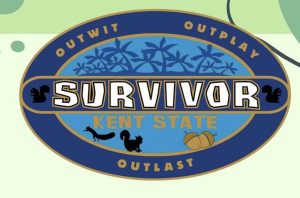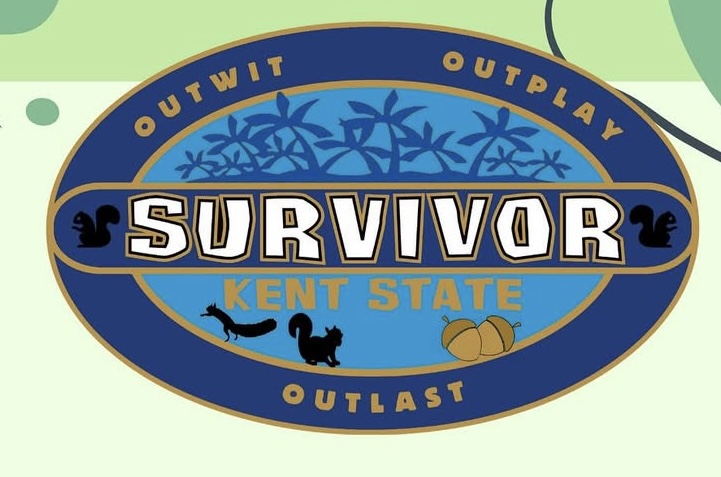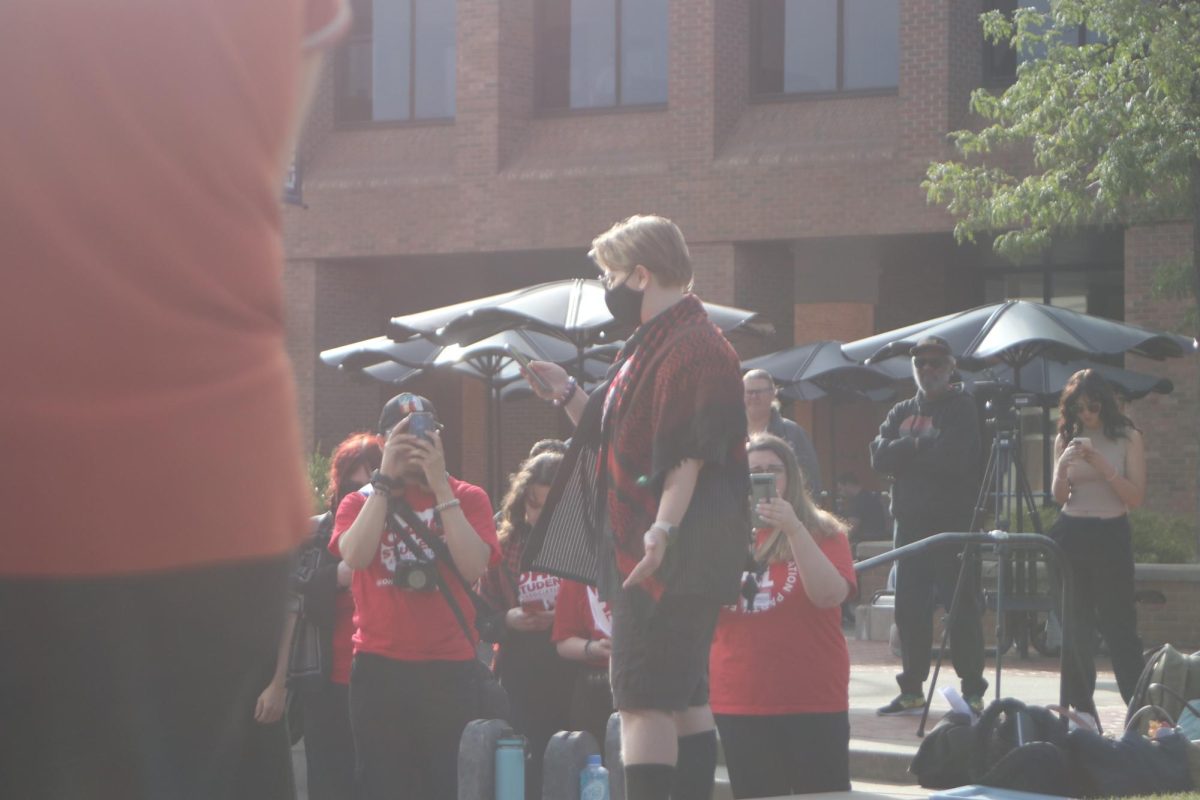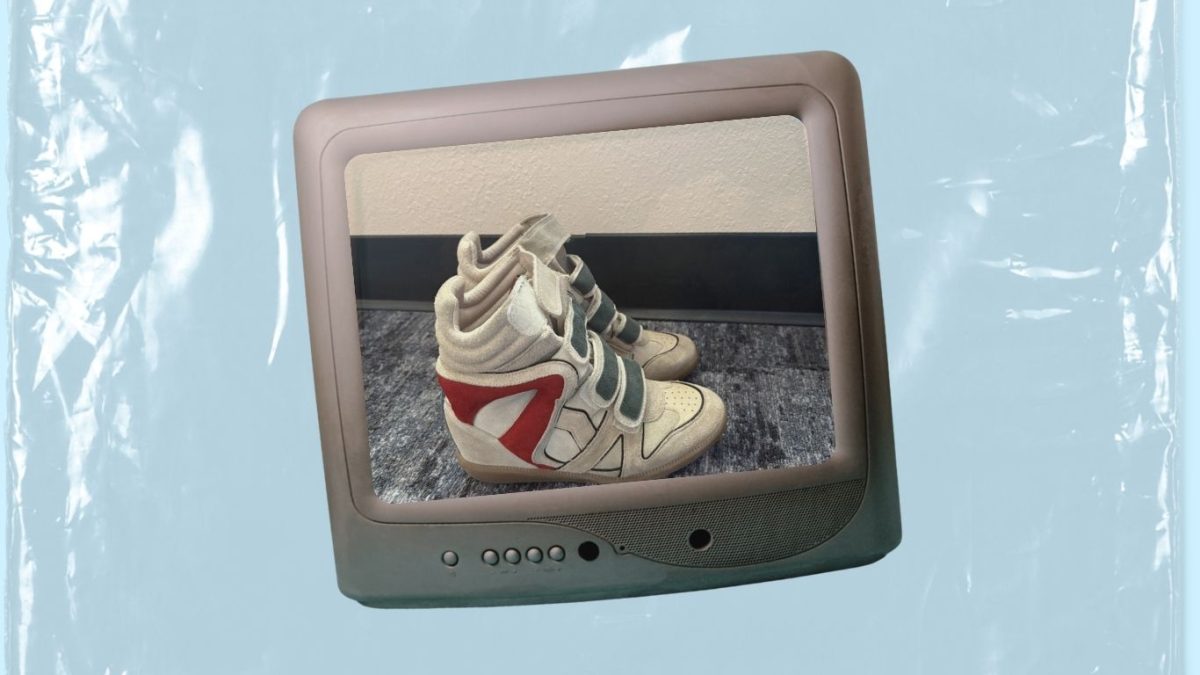When I pull open the door to Bowman Hall Feb. 9, 2025, I am both convinced I am going to be the most pathetic survivor to ever set foot on Kent State’s campus and that I have the wits to outwit, outplay and outlast each and every competitor I would soon face.
These plans are months in the making. Last fall, I submitted an application on Google Forms, which was followed by a Zoom interview with someone who called himself the “host” and concluded with a casting offer. Yes, I, Quinn Schafer, really expected to play “Survivor” on a college campus.
My therapist told me I needed to make friends, so this was my plan: For the second semester of my sophomore year, I’d apply for KSU’s new Survivor club, get cast, meet some people who share my interests, participate in some fun challenges on weekends and walk away happy when my torch was snuffed.
Instead, I made far more enemies than friends, spent most of my semester more worried about where to find an idol than when I was going to finish homework for my English major and genuinely got emotionally invested in my silly live roleplay club.
For one semester, I wasn’t a student — I was a contestant fighting to survive like there was a million dollars on the line.
Since I walked into my living room eight years ago and witnessed a half-starved bald man verbally decimate his equally half-starved opponent on television in what I later learned was called the “final tribal council,” I had been hooked on the two-and-a-half-decade-old social experiment survival reality TV phenomenon that is “Survivor.”
I was inexplicably drawn to the way the finalist, Tony Vlachos, described manipulating and deceiving every single one of his opponents and the way they all seemed to agree that, yes, he did a great job robbing them of $1 million. For the next few years, in waves, I watched roughly 30 of “Survivor’s” nearly 50 seasons.
PART ONE: THE MAROONING
In the lobby of Bowman sits less than a dozen people, all wearing various shades of blue for the first KSU Survivor event. I quietly join them. I watch another girl, who had come in behind me, ask a seated student if they were here for Survivor, too.
I stay silent and immediately start sizing up my fellow contestants. Do those girls seem to know each other? Does that guy look like he’d run fast? Why is this girl talking so much?
Maybe this seems kind of mean, but I am going to spend the rest of my spring semester competing against these people to win the title of Sole Survivor. I have to be ready.
More people file into Bowman, and finally, the host, a tall guy wearing a “Survivor” baseball cap who introduces himself as Kyle Fink, a graduate clinical mental health counseling student, invites all 14 of us into a large lecture hall where we introduce ourselves and open brown paper bags to discover a bandana — or “buff” for “Survivor” fans —with our new tribe colors.
Wearing our buffs, we are true Survivor players. Kyle formally welcomes us.
“You are all now in your tribes, and I’d like to officially welcome you to season one of ‘Kent State Survivor,’” he says. “This is a season that will test you physically, mentally, emotionally and probably spiritually. I hope you’re ready.”
I am now a member of Vuaka, the blue tribe. Our opponents are the yellow tribe, Rarama. For weeks, we will all struggle to remember and pronounce our Fijian tribe names.
The most jarring part of the experience is not the sudden transformation of my peers into my enemies, but the cameras all trained on me and my fellow contestants. An email had informed me that the club intended to create a YouTube series out of our game, but I hadn’t exactly expected the awkwardness I felt as someone directed a tripod at my face while I introduced myself to my new tribe.
I am a bundle of nerves, eager to start our first challenge as a tribe and discover if I will be vulnerable to the most dreaded fate in all of “Survivor:” getting voted out first. To avoid this fate, my tribe must win the challenge. Instead, my six other tribemates and I spend about an hour making cautious small talk while painting our tribe’s banner.
I try to notice things — two people are in the same major. Will they form an alliance? One guy is sitting very quietly. Easy first boot? One of the members of my tribe had been in my Flashes 101 section a year ago. Will this be an advantage for me?
After what seems like an eternity (I hate small talk), Kyle introduces our first challenge.
“Now that each of you has gotten a chance to get to know your tribes, I think it’s time that we test the new bonds that you’ve built. It’s all been fun and games so far, but now it’s time to get down to business,” he says.
It was to be a four-legged relay race with sections for running, memory, a puzzle and ball handling. After some discussion, I am assigned to the memory portion, which I will run alone. My opponent on the other tribe is a then-junior history major named Izzy Angione.
As I wait for the race to begin, I can feel my skin buzzing with fear and anticipation. The first challenge is so important. It’s your first — and maybe only — chance to prove to your tribe that you are an asset to your team. A poor performance here will surely mean immediate doom at tribal council.
Each tribe’s runners come out almost dead even. Heart pounding, I sprint out of the lecture hall and to a small table with a picture of colored rocks arranged in a four-by-four grid. Breathing heavy, I mutter the first eight colors in order and race down the hallway, up a flight of stairs and into a classroom where I find a pile of colored rocks waiting to be arranged. I am vaguely aware of Izzy running slightly behind me and cameras following my frantic movements.
While trying to put the first eight rocks in order, I realize there seem to be too many rocks in the pile. I quickly count 20 rocks, though I would only use 16. It takes me three more sprints up and down hallways and stairs while repeating colors under my breath until I get the rocks arranged in a satisfactory order.
My lungs and ankles ache. I picked the memory section because I am not an athlete. Why was I running so much?
I have lost track of Izzy by the time I call for my puzzle to be checked. A crew member peers at my puzzle for a tense moment before announcing, “Vuaka moves on to the 3rd leg of the race!”
Buoyed by joy, I run my reward, a bag of puzzle pieces, into the lecture hall and hand it off to my cheering tribe mates. I can’t help but grin a little through labored breaths. I may be developing shin splints, but at least I’m not going to get voted off for sucking at the challenge.
While my tribe mates Maeve Grennan, a then-junior studio art major, and Aiden Zapisek, a then-sophomore digital media production major, work on their puzzle, I wait with my tribe’s runner, a then-junior neuroscience major named Kaden Paniagua, for Izzy to return with her tribe’s puzzle bag. And wait. And then Maeve and Aiden announce that they have finished the puzzle, and Maeve races off to hand the balls we have won to the final three members of our tribe. Rarama’s puzzlers are looking increasingly desolate as they wait for a bag that seemingly will never arrive.
Our parts completed, Aiden joins Kaden and me. Then, a miracle happens — my first strategy conversation!
Aiden spearheads the conversation, probing Kaden and me for our thoughts on the members of our tribe.
“I like the three that we have right here,” Kaden says.
I quickly voice my eager assent. You don’t turn down an alliance when it’s offered to you.
“We just need a 4th ally to have the majority on Vuaka,” Aiden agrees.
Kaden, who declared that he ran a marathon last year for his fun fact, pitches Molly Markowitz, a then-sophomore neuroscience major. I quickly note my correct assumption of their same-major alliance. I need to include someone else. I like Molly enough, but I can’t let Kaden bring in someone who would be loyal only to him.
“What about Mason Riley?” I offer our tribe’s youngest member, a then-freshman exploratory major. “He seems quiet, so I doubt anyone else has approached him.”
“I like Mason,” Aiden agrees. “We can try to talk to both Mason and Molly this week.”
My sudden fall into the role of strategist feels oddly natural and exhilarating. I’ve been preparing to lie, cheat and steal my way to the title of Sole Survivor for years, after all. It should be natural.
Soon, the crew members and my fellow castaways converge in the lecture hall, where Kyle announces, “Vuaka has won the first immunity challenge, sending Rarama to tribal council, where someone will be the first person eliminated from ‘Kent State Survivor,’ Season 1.”
Kyle reveals this season’s tribal immunity idol: a bobblehead turtle made out of a coconut, painted dark blue with yellow cross-hatching on the shell. For winning the first challenge, we are allowed to name the turtle and keep it with us until the next challenge as a token of our tribe’s safety. Molly suggests the name “Coco Diva Nut,” and we decide that the turtle uses she/they pronouns.
Coco in hand, my victorious tribe swarms around me, asking how I memorized those rocks so much faster than Izzy, who looks worn-out and crestfallen across the room. It’s hard not to brag about my victory. I singlehandedly gave the tribe such a large lead that we finished two entire legs ahead of Rarama.
I shouldn’t brag, though. My strategy coming into the game — which I declared in a pre-season confessional — was to stay agreeable, downplay my skills and feign vague knowledge of the game.
With just a little bit of praise, my whole game falls apart on day one. Suddenly, I am revealing that I’ve always had a knack for memorizing things quickly, I’ve seen dozens of seasons of “Survivor” and Parvati is my favorite player.
Vuaka chats for a while, giddy from our fresh triumph, before we disperse to our dorms and cars. I feel less disappointed by my lack of strategy than I probably should. Will it really matter that much that I established myself to the other tribe as a challenge threat? We’ll just keep winning anyway. And even if we lose, I have my allies, Kaden and Aiden, who are nice and clearly as knowledgeable about the game as I am. They will protect me.
As I walk to my dorm, I can picture myself sitting down at the final tribal council next to Kaden or Aiden and proving why I deserve to win the game. I imagine all the great moves I can make with my solid alliance and all the challenges I’ll win against those pathetic Raramas.
I would soon be humbled.
Quinn Schafer is a web writer and copy editor. Contact her at [email protected].

















